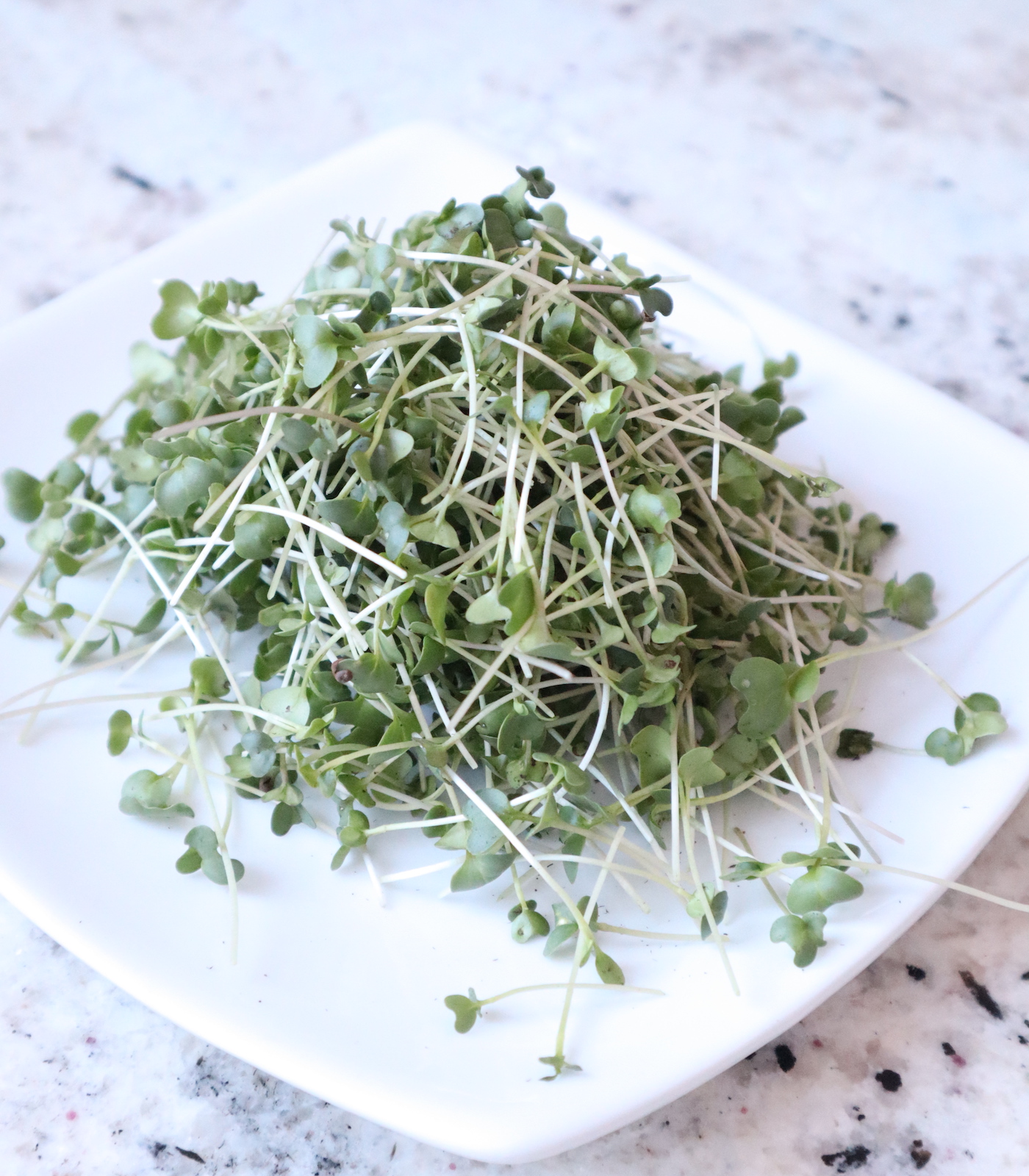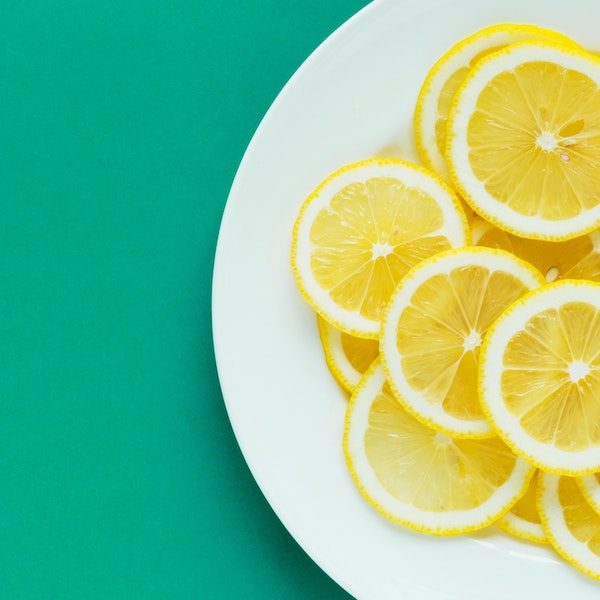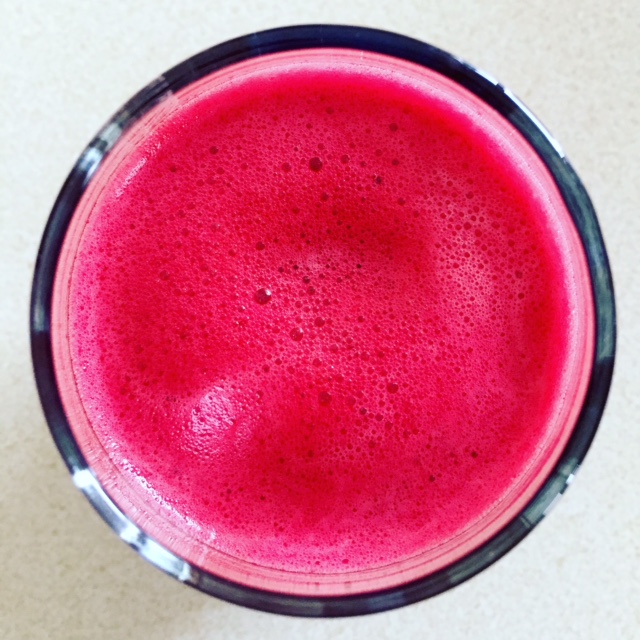Following an anti-cancer diet is one of the greatest ways to prevent cancer from happening in the first place. If you or someone you love has been diagnosed with cancer, following an anti-cancer diet and incorporating cancer fighting foods becomes crucially important. What you put in (and on) your body has a direct impact on the internal environment for which cancer can or cannot thrive. You want to make the body uninhabitable for cancer – a place where it cannot thrive and grow.
Disclosure: The information in this article is for educational purposes only. Do not use this information as medical advice. Always consult the advice of a medical physician if you have any questions or concerns regarding your health. This article is written based on my own personal research and interest in ways to protect myself and my family.
When following an anti-cancer diet, it’s first and foremost important to cut out/limit the things in your diet that cancer thrives on – sugar, processed foods, alcohol, etc. Always investigate the foods you’re putting into your body. Read ingredient labels, and do your best to avoid what’s artificial. The best thing you can do is make your own meals from whole food sources. Choose organic when you can, and be aware of the dirty dozen and clean fifteen, so you know the most important foods to buy organic. Avoid foods cooked at high temperatures, such as frying and charring. Avoid foods made/cooked with refined oils, such as vegetable, canola, soybean, or grapeseed oil (most store bought salad dressings contain these oils, though some don’t, but you can easily make your own much healthier version). Don’t drink out of plastic water bottles, or cook/heat anything with plastic. These are just some of the things you can do to reduce your risk of cancer.
Aside from cutting out the bad, flood your body with the good! Research shows that these (in no particular order) may be some of the most powerful anti-cancer foods to incorporate into your diet:
18 Powerful Cancer Fighting Foods
1. Broccoli Sprouts
Broccoli sprouts, which are baby broccoli plants usually consumed 3-5 days after seed germination, are LOADED with sulforaphane. Sulforaphane is a phytonutrient that has been studied extensively and consistently demonstrates incredibly powerful anti-cancer properties. It has shown to activate apoptosis of cancer cells (suicide of cancer cells), and to have chemopreventive properties, specifically targeting cancerous cells, leaving healthy cells alone. A cup of broccoli sprouts has up to 100X more sulforaphane than a cup of mature broccoli florets! They’re easy to add to any sandwich, salad or smoothie. It may be hard to find fresh broccoli sprouts on grocery store shelves, because they have to be consumed so soon after seed germination, but they are simple, fun, and cheap to grow at home. You can grow them using just broccoli sprouting seeds* and some water in a mason jar with a mesh lid*, or a seed sprouting tray*. Here’s a post I shared on how to grow your own broccoli sprouts at home.
2. Turmeric (together with black pepper to increase absorption)
Turmeric has been an important part of traditional Indian and Chinese medicines for thousands of years. Curcumin is the potent compound found in turmeric that gives it its medicinal properties. It has strong antioxidant, anti-inflammatory, antimicrobial, antiviral, and anticancer properties. It does, however, have very low bioavailability, which means it’s not easily absorbed by the body. When combined with black pepper (more specifically the compound piperine found in black pepper), absorption of curcumin enhances by as much as 2000%! Add ground turmeric and black pepper to your dinner recipes, and try this soothing Golden Milk recipe to take advantage of this amazing spice.
3. Cruciferous Vegetables including Cauliflower, Broccoli, Brussels Sprouts, Cabbage, Bok Choy, Horseradish
Like other vegetables, cruciferous vegetables are loaded with nutrients and phytochemicals (like folate, fiber, carotenoids and chlorophyll) that have cancer preventative properties. However, cruciferous vegetables are unique in that they are rich in glucosinolates, sulfur-containing compounds that are responsible for their pungent and spicy aroma and taste. As with the broccoli sprouts, cruciferous vegetables contain sulforophane (though not nearly as much as broccoli sprouts), with strong anti-cancer and chemopreventitive properties.
4. Berries including Blueberries, Strawberries, and Blackberries
Berries are rich in polyphenols and anthocyanins, which protect against inflammation, inhibit angiogenesis (the formation of new blood vessels to support the growth of tissue such as a tumor), protect against DNA damage, and promote apoptosis or death of malignant cells.
5. Cranberries
Cranberries could definitely fall in the above “berries” category, but I think they deserve their own spot on this list of top cancer fighting foods. In this study named “Antioxidant and Antiproliferative Activities of Common Fruits,” cranberries topped the list for inhibiting proliferation (aka growth/spread) of human liver cancer cells. Cranberries are a verrrrry bitter fruit, which is why when you buy cranberry “sauce” (which is really jelly) or cranberry juice, it’s usually mostly sugar. I recently discovered this freeze dried cranberry powder*, which is 100% wild organic cranberries with absolutely no added sugar, and it’s much less bitter and tart than fresh cranberries. I’ve been adding it to smoothies and baking with it. A little goes a long way and it tastes great.
6. Dark Leafy Green Vegetables such as Spinach, Kale, Collard Greens, Arugula, Swiss chard, Bok Choy and Watercress
Leafy greens are loaded with vitamins, minerals, nutrients and antioxidants that protect cells and play important roles in blocking the early stages of cancer.
7. Beets
There has been substantial evidence showing beetroot as a powerful anticancer functional food, and beets have long been known to purify the blood. As a good source of polyphenols, flavonoids, dietary nitrates and other useful nutrients, consumption of beetroot may help prevent cancer, as well as manage undesired effects associated with chemotherapy, such as fatigue. Beets have significant antioxidant and anti-inflammatory capacities, and contain a substantial amount of both non-essential and essential amino acids. They are nitrate and oxalate-rich, and do have a high sucrose (sugar) content, so intake of excessive beetroot may pose a health risk, especially to someone who is pregnant, prone to kidney stones, or has metabolic syndrome or diabetes. My favorite way to have beets is to juice them. The combination of beet, carrot, and apple juiced together often gets referred to as “the miracle drink.”
8. Mushrooms
Higher mushroom consumption is associated with a lower risk of cancer, according to a study from Penn State. They may be most beneficial in preventing breast cancer, as they are natural aromatase inhibitors suppressing breast cancer cell proliferation. There is a very wide variety of mushrooms to choose from, and some have more medicinal qualities than others. Among the thousands of kinds of mushrooms known, some of the most common and health protective are white button, cremini, portobello, oyster, shiitake, maitake, chaga and reishi.
9. Garlic
Garlic is a natural immune booster, is anti-inflammatory, anti-bacterial, anti-fungal, anti-microbial, and promotes heart health, but its greatest property may be cancer preventative. It is especially linked to reduced risk of gastrointestinal cancers, such as colon cancer.
10. Onions
Like garlic, onions are a part of the Allium family and have strong cancer-preventive effects. According to a study by Cornell University food scientists, shallots, Western Yellow, pungent yellow and Northern Red onions are higher in anti-cancer chemicals than other varieties tested.
11. Beans, peas and Lentils
Beans, peas and lentils are a great source of dietary fiber, which may help to reduce the risk of certain types of cancer, including colon cancer. They also contain significant levels of antioxidants and phytochemicals. Avoid buying canned beans and lentils, as cans are too often lined with toxic BPA, a chemical strongly linked to cancer. Instead, buy dry beans and lentils to cook on your own. I usually pressure cook mine (no soaking required), or you can soak them overnight to soften them up before cooking.
12. Ginger
Ginger has been widely used for thousands of years for its medicinal qualities, including fighting nausea and upset stomach. One compound found in ginger, has been found to have anti-bacterial, anti-inflammatory and anti-tumor activities. Try juicing a knob of fresh ginger with other fruits and veggies, or sip ginger tea to reap its benefits.
13. Green Tea
Green tea possess strong antioxidant, antimutagenic, and anticarcinogenic effects that help protect against the risk of cancer.
14. Artichoke
Artichokes are a very antioxidant-rich vegetable with potential anti-cancer activity shown to inhibit cancer cell growth and initiate apoptosis.
15. Lemon
Lemons are loaded with antioxidants, and two of their active compounds, hesperidin and d-limonene, have been studied for their ability to reduce the risk of cancer. Don’t disregard the peel… d-limonene is most present in the peel of citrus fruit, so use it when you can. I juice entire chunks of lemon, the peel, seeds and all. Do make sure to use organic lemons, especially when consuming the peel, because citrus fruits are very commonly contaminated with fungicides.
16. Celery
Celery is another great source of antioxidants, and it contains a flavonoid called apigenin, which has been shown to have chemopreventive aspects. It has been shown in studies to suppress inflammation and angiogenesis (growth of blood vessels), and induce autophagy (which is the body’s way of cleaning out damaged cells) and cancer cell apoptosis (programmed death).
17. Pomegranate
Pomegranate has been used for the prevention and treatment of a multitude of diseases and ailments for centuries. The edible part of the pomegranate (the seeds) have strong antioxidant and anti-inflammatory properties. Red wine and green tea have been widely recognized for their powerful antioxidant activity, but it’s lesser known that pomegranate seeds have significantly more!
18. Sesame Seeds
Sesamin and sesamolin, two of the major active ingredients in sesame seeds, possess potent anti-cancer properties, one of which is the induction of apoptosis, or suicide of cancer cells.
The above list is definitely not all-inclusive. There are plenty of other whole foods loaded with phytonutrients that have the potential to protect against and fight cancer. These are just some of the ones that have stood out to me. So, eat your vegetables, try to get in all the colors of the rainbow, and definitely don’t be afraid to use herbs and spices!
It’s interesting to note that some particular foods target particular cancers. For instance, after my mom was recently diagnosed with HER2 Positive breast cancer, I found this study from Duke Medicine, that states psoralen, a compound found in foods such as celery and figs, blocks the signaling pathway of the HER2 receptor. If you or a loved one has been diagnosed with cancer, it may be beneficial to do research on the foods that may target a specific cancer.
*As an Amazon Associate I earn from qualifying purchases.
Some of the links above are “affiliate links.” This means if you click on the link and purchase the item, I will receive an affiliate commission. Regardless, I only recommend products or services that I believe will add value to my readers
Sources:
https://www.cancer.gov/about-cancer/causes-prevention/risk/diet/cruciferous-vegetables-fact-sheet
https://foodrevolution.org/blog/gbombs-healthiest-foods/
https://www.ncbi.nlm.nih.gov/pmc/articles/PMC5039576/
https://corporate.dukehealth.org/news/natural-compound-attacks-her2-positive-breast-cancer-cells
https://pubmed.ncbi.nlm.nih.gov/28925728/
https://pubmed.ncbi.nlm.nih.gov/23902242/
https://www.ncbi.nlm.nih.gov/pmc/articles/PMC4432495/
https://www.ncbi.nlm.nih.gov/pmc/articles/PMC6835707/
https://pubmed.ncbi.nlm.nih.gov/9619120/
https://pubmed.ncbi.nlm.nih.gov/23679237/
https://www.ncbi.nlm.nih.gov/pmc/articles/PMC5187535/
https://pubmed.ncbi.nlm.nih.gov/12452674/
https://www.ars.usda.gov/plains-area/gfnd/gfhnrc/docs/news-2013/dark-green-leafy-vegetables/
https://www.ncbi.nlm.nih.gov/pmc/articles/PMC8020175/
https://www.psu.edu/news/research/story/higher-mushroom-consumption-associated-lower-risk-cancer/
https://pubmed.ncbi.nlm.nih.gov/11739882/
https://www.ncbi.nlm.nih.gov/pmc/articles/PMC4366009/
https://www.sciencedirect.com/science/article/pii/S0753332219353521
https://news.cornell.edu/stories/2004/10/some-onions-have-excellent-anti-cancer-benefits
https://www.ncbi.nlm.nih.gov/pmc/articles/PMC2687755/
https://www.ncbi.nlm.nih.gov/pmc/articles/PMC2855614/
https://pubmed.ncbi.nlm.nih.gov/32372389/
https://pubmed.ncbi.nlm.nih.gov/23117440/
https://pubmed.ncbi.nlm.nih.gov/22174562/
https://pubmed.ncbi.nlm.nih.gov/10082788/
https://pubmed.ncbi.nlm.nih.gov/11142088/
https://www.ewg.org/foodnews/citrus.php
https://www.ncbi.nlm.nih.gov/pmc/articles/PMC5207605/
https://www.ncbi.nlm.nih.gov/pmc/articles/PMC5560105/
https://www.sciencedirect.com/science/article/abs/pii/S0014299917306702?via%3Dihub



